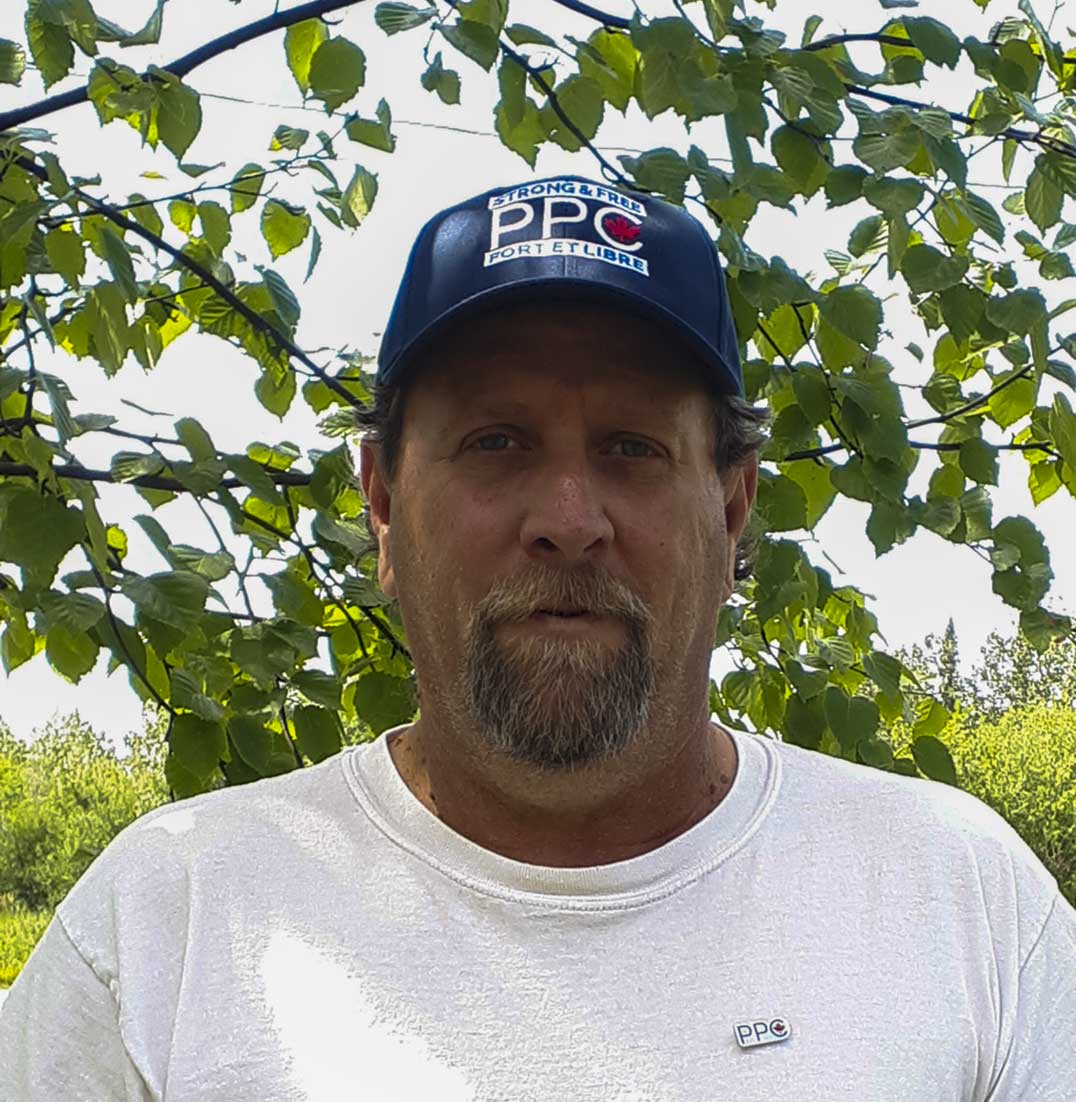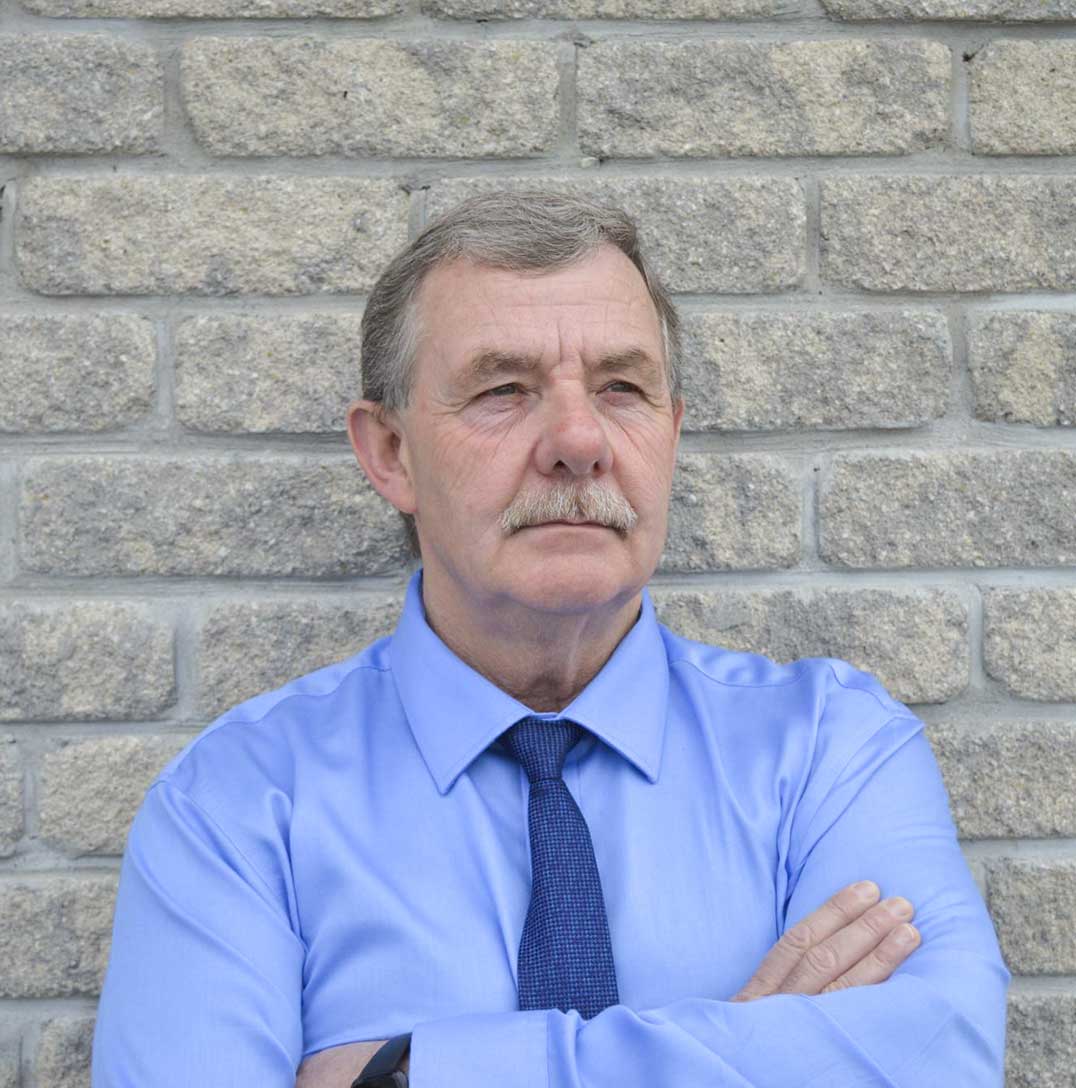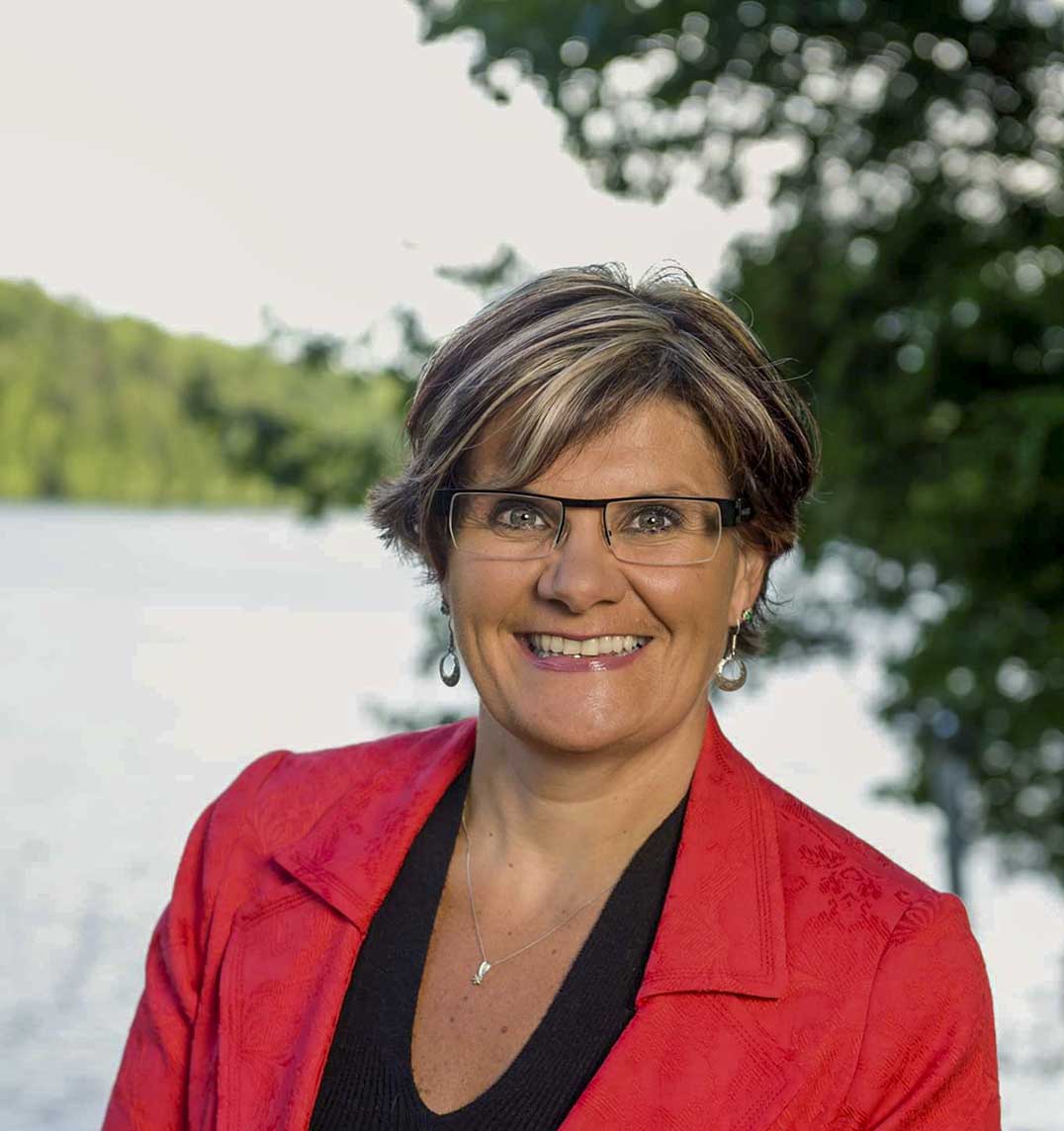EDITOR’S NOTE: Starting this week, The Expositor will be posing a weekly question to each candidate in the Algoma-Manitoulin-Kapuskasing riding and publishing their responses in our newspaper. We have asked that the candidates restrict their answer to a 700-word limit. Otherwise, they are free to answer in any way they choose.
The issue of the transmission of Alberta crude oil to ports and refineries on Canada’s Pacific and Atlantic regions is a complicated one that has drawn a great deal of emotional response from communities and provinces that either vigorously support or equally vigorously oppose the initiative.
The people and the province of Alberta feel the prosperity of their province is at stake if more of their primary natural resource cannot be shipped and sold to refineries and consumers.
The province of Quebec has opposed the idea of an “energy east” pipeline that would traverse its territory. The province of British Columbia does not support a new westbound pipeline that would carry more product to the coast. Many First Nations communities in British Columbia oppose any new pipeline going through their territories. Others support the project.
In addition, many Canadians oppose any expansion of the fossil fuel industry and feel that support for green energy initiatives is the only alternative to climate change and other natural concerns.
If your party is successful and forms the next Government of Canada, what measures will it take, if any, to reconcile these competing interests?

Max Chapman
Green Party of Canada
The Green Party plans to begin a “just transition” from fossil fuels to renewable energy under the next government. This means beginning to phase out fossil fuels now so we can meet our target of cutting emissions by 60 percent by 2030. To achieve this, no new pipelines, or coal, or oil or gas mining, will be approved. Existing oil and gas operations will continue on a declining basis, with bitumen production phased out between 2030 and 2035. In the past the transition from fossil fuels to renewables has been used to stoke fear and divided Canadians but this is not based in fact. Greens are committed to protecting workers as we move to the green economy.
We will immediately begin investing in renewable energy and sustainable natural resource development. Funding to educational programs which transition the skills of oil and gas workers to fit the needs of a Green economy will make sure that they do not lose work because of this change, and in the process make their livelihoods less susceptible to the boom and bust of the oil industry. As well, to enable renewable electricity to flow across provincial and territorial boundaries, we will implement a national electrical grid strategy, including building connections between eastern Manitoba and western Ontario, and upgrading connections between New Brunswick and Nova Scotia. This will be paid for with money now allocated for expanding the Trans Mountain pipeline, and create thousands of jobs nation-wide. We will also create jobs through retrofitting all buildings in Canada to be more energy efficient, a task which will employ thousands of skilled Canadians.
This transition will benefit Algoma-Manitoulin-Kapuskasing by refocusing Natural Resources Canada away from oil and gas (which have dominated the Departments attention) towards industries which are more environmentally sustainable. We will renew the National Forest Strategy abandoned under the Harper government, and highlight the role of forests in removing carbon from the atmosphere and the need to retain the integrity of forest ecosystems. Increased funds would be dedicated to research and the expansion of tree nurseries in support of these objectives. We will also begin investing in value-added manufacturing for lumber rather than shipping raw logs to the USA, and create jobs in Canada. We will also invest $40 million into a Northern Ontario based Mining Innovation Cluster, which will focus on reducing emissions in the mining industry and increasing the yields of base metals like copper and aluminum which are vital to our efforts to build renewable energy infrastructure.
The transition to a green economy isn’t a matter of competing interests between Alberta and the rest of Canada; it is a matter of saying to oil and gas companies that all Canadians want to live in a country which protects the environment and provides decent work and a steady income for all its citizens. That is the Greens position in this election, moving our country forward together.

Dave DeLisle
People’s Party of Canada
Fossil fuels are an intricate part of our society. It is required for almost everything that we use on a daily basis. If you really think about it, it is a renewable source even though it does take some time to renew. It has been said in the past that we would run out of this natural resource, and yet that is not the case.
Fossil fuels have been a reliable, stable source of energy for a long time and has made our society so much better because of it. It is not only used for heating our homes in the cold winter months, and powering our transportation, but it is used to make plastic that we use for almost everything from baby bottles, life saving hospital equipment such as oxygen tubes, to parts of cars, and other things that we use on a daily basis such as the keyboards on the computers we require.
Rather than trying to eliminate fossil fuels all together at this moment in time, we should be focusing our energy on finding new ways to recycle these products in a responsible manner. We need to look into researching how we can do this. Solar and wind power do not meet the every day needs of our society and they are extremely costly, and we are unable to store there power for long periods of time.
We cannot use solar or wind power in our every day life for things that we require, such things that I have mentioned above. We should offer grants or incentives for researching alternative ways of adapting to the naturally occurring cyclical climate. Making people pay a tax is only going to create more hardships for everyone, and does nothing to help us adapt to the natural climate changes.
This is not to say that we shouldn’t be working on reducing pollution, or cleaning up our air. We are a carbon-based planet, and CO2 (carbon dioxide) is necessary for life. The trees and plants breathe in CO2 and give out the oxygen that we require to live. Without it trees and plants would die, effecting our food supply. When the trees are removed for the forest industry, we need to make sure that they are replenished, we need to encourage everyone that can to plant a few trees in their own yards. They are also a good source of shade to help keep us cool on a hot summer’s day and help prevent erosion of the soil.
I believe that we should consult and listen to the First Nations people, they contribute valuable insight. I feel that we should be able to listen to them and address any concerns that they have. I know that it is impossible to acquire 100 percent consensus on any issue and if the majority of First Nations feel that we should proceed with the pipelines then there should be no reason that we can’t proceed as it is what we must do for the benefit of all Canadians including the First Nations.
It makes zero sense that we have a tanker ban for our own tankers yet allow tankers which carry oil from other countries to enter our ports. It is imperative that we are able to get our oil to market, not only to keep jobs in Alberta, but for the economic benefits that it has for all of Canada. We need to end the reliance of oil from other countries and become more self sufficient. (That is not to say that we won’t need oil from other countries, but we should only use their oil when we have too, we should be using Canadian oil first to serve our needs.) The pipelines of today would be more environmentally friendly then those that are currently being used as technology has drastically improved, shipping by pipeline is much more environmentally friendly and safer for everyone and everything, along with being more cost effective then shipping it by rail.
The planet is constantly changing, rather than trying to fight a naturally occurring process, we should be working together to find new ways to adapt to the natural changes.

Carol Hughes
New Democratic Party
New Democrats understand that pipelines, energy and fossil fuels have divided provinces and Canadians all over the country. In Northern Ontario, communities are dealing with more and more climate-related disasters like wildfires and extreme seasonal floods. The evidence is crystal clear: Canadians must move urgently to take on climate change with real action.
Justin Trudeau told Canadians he would take on climate change, but actions haven’t matched words, especially when it comes to oil and gas. He broke his promise to end billions in fossil fuel subsidies, bought a $4.5 billion pipeline on the public dime, and his government met 1,500 times with oil company lobbyists. Now they are trying push through pipeline expansion despite opposition from BC and First Nations and they’re not even close to meeting their climate targets. We can do better.
There are compelling arguments to expand pipeline capacity, but there are powerful challenges that won’t be addressed by more pipelines. A sustained decline in global crude oil price outlooks, a consequent global reduction in fossil fuel investment coupled with the loud, urgent demands of climate change, make big, expensive oil projects, such as oil sands expansion, increasingly unattractive to shareholders and lenders. The oil patch has less and less interest in funding expensive, energy-intensive bitumen projects. Add to that the march toward greener technology and the return on investment for multi-billion projects becomes vastly less certain than it was in the past.
New Democrats won’t continue down the path of Liberal and Conservative governments that chose to spend public money on oil and gas subsidies. Canada currently spends $3.3 billion per year, more per capita than any other G7 country, on oil and gas subsidies. On top of that, the Liberals purchased the Kinder Morgan pipeline for a staggering $4.5 billion and gave another $1.6 billion in handouts to the oil patch. Unacceptable.
New Democrats know that public funds are best spent supporting the transition to renewable energy rather than on profitable oil and gas companies. We will fulfill Canada’s G-20 commitment to eliminate fossil fuel subsidies and redirect these funds to low carbon initiatives.
Pipelines leak and trains derail which means we have no fool-proof way of moving oil. The Kinder Morgan pipeline is 66 years old and requires significant maintenance to remain viable and protect the habitat it runs through. That illustrates why robust environmental impact processes is vital.
And for too long, Indigenous peoples haven’t been listened to on major projects that affect them and their traditional lands. It’s time for that to change!
New Democrats will give Canadians a stronger voice in energy decisions that impact their communities. We will overhaul the process for reviewing major projects to ensure adequate public consultation and provide core funding to support Indigenous communities participating in these processes. The NDP will ensure that proposed projects align with our emissions reduction targets, respect Indigenous rights, and create good jobs here in Canada.
We must move forward together with energy, climate and jobs action that unites people instead of dividing them. Canada’s government can model change by becoming a trail-blazer in energy efficiency, clean technologies, and renewable energy use. Our plan would create 300,000 jobs in green industries that won’t leave Northern communities behind and gives Indigenous people a seat at the table. We will expand support and technological assistance to bring more innovative Canadian clean technologies to market and support manufacturing right here at home. The NDP will set tough climate targets based on science, ensuring accountability meeting those targets.
The Liberals have completely taken the side of big companies and lobbyists so there is little to separate them the Conservatives who are willing to gamble our children’s future for the benefit of oil companies and a short burst in employment while pipelines are built.
The NDP wants to bring people together – working for families and to preserve our natural heritage. Canadian’s deserve a government that’s there for them. A government that puts jobs and communities at the heart of planning, and actually works to meet our international environmental commitments.

Dave Williamson
Conservative Party of Canada
It is often difficult for government to balance competing needs, wants or desires. However, I believe the key to a successful approach is to actively listen to peoples’ concerns, determine what their respective positions are, conduct the appropriate research, determine the economic and social costs of a decision and finally, make a decision that is in the best interest of our country.
Two years ago at a town hall meeting, Trudeau said: “We can’t shut down the oil sands tomorrow. We need to phase them out.” Trudeau wants to get rid of an industry that puts food on the tables of hundreds of thousands of Canadian families, generates untold growth and wealth across the country, and pumps billions of dollars into government coffers for programs and services. To do it, he has launched an all-out legislative attack. A package of new bills that, if passed into law, will deliver a death knell to a critical Canadian industry. Under Justin Trudeau, Canada has become a country of no. Canada should be a country of yes.
Andrew Scheer has a six-point plan to get projects built: 1. Cancel the carbon tax; 2. Repeal Bill C-69, the No-More Pipelines Bill; 3. End the ban on shipping traffic in British Columbia.; 4. Establish clear time lines and get Indigenous consultations right up front; 5. Ban foreign-funded advocacy groups from disrupting our approvals process; and 6. Assert federal jurisdiction when necessary.
The fact is Canada has more than enough oil – not only to displace imports from Iran, Venezuela and Saudi Arabia – but to put an end to all foreign imports once and for all.
An Andrew Scheer government will develop a dedicated, coast-to-coast right-of-way specifically set aside for energy infrastructure projects. Rather than have industry submit complicated route proposals for every new transmission line and pipeline project, we could have a single corridor – planned up front and in full consultation with the provinces and with Indigenous Canadians who would share in the prosperity that it would provide. With a single corridor, we could minimize environmental impacts, lower the costs of environmental assessments, increase certainty for investors and, most importantly, get these critical projects built. All while doing Canada’s part in the fight against climate change by lowering global emissions.
In addition, many Canadians oppose any expansion of the fossil fuel industry and feel that support for green energy initiatives is the only alternative to climate change and other natural concerns. This is not unlike the opposition of special interest groups to forestry and mining in Northern Ontario
Canadians are having trouble getting by and they trusted Justin Trudeau when he said he would protect the environment and lower Canada’s emissions. As an environmental policy, the carbon tax is a failure of epic proportions. It makes virtually no contribution to the global fight against climate change. And it only makes life more expensive for Canadian families and small businesses.
We should all be concerned about climate change – about the kind of planet we will leave to future generations. A Real Plan to Protect Our Environment is built on three guiding principles: Green technology, not taxes; a cleaner and greener natural environment; and taking the climate change fight global.
This plan is the most comprehensive environmental platform ever put forward by a political party in Canada. Sixty pages and 55 specific, realistic and achievable policy commitments. Under the Conservative plan, it will not be free to pollute – and unlike the Liberal scheme, there will be no sweetheart deals for anybody. However, rather than simply funneling money to the government as the Liberal plan dictates, emitters who exceed our limits will be required to invest in technology that will lower emissions to fight climate change. Technology. Not taxes.
As I said at the beginning, it is often difficult to balance competing needs, but an Andrew Scheer government will bring fairness and integrity back into government. By eliminating handouts to rich multi-nationals and focusing on helping Canadians get ahead, we will be able to reconcile our differences and build a stronger Canada.

Heather Wilson
Liberal Party of Canada
Canada’s vastness creates various opinions on a number of subjects. I have knocked on literally thousands of doors during this election period. What I have come to understand during that time is that one solution does not satisfy all communities. Even in our riding of Algoma-Manitoulin-Kapuskasing, for example, the most important issue for the communities of White River and Hornepayne is getting workers to jobs that are already there so investing in infrastructure and housing is paramount. But in Spanish the most important issue there is creating jobs in that community, so investing in innovation and small business is the major issue. This illustrates that even in our riding there are competing interests as to what is most important this election, so it is easy to understand that there would be competing interests on a national level as well.
In relation to the competing interests regarding pipelines, we have to understand that climate change is real and so is the concern that pipelines have had adverse effects for the environment. We can also not deny what our natural resources contribute, not just to the Canadian economy and life experience, but to the global economy and way of life.
It is unlikely that Canada and other countries will move away from fossil fuels dependency in the next few decades. As residents in Northern Ontario we know the challenges to moving fossil fuels by truck and train given that Gogama experienced a train derailment which resulted in the 2015 oil spill. We also know that the movement of product by truck is increasingly dangerous for us on our roads so moving crude oil by means other than pipelines are not necessarily the answer.
It is a fact that the Liberal government invested in pipelines in an effort to improve access to foreign markets. It is also a fact that Alberta’s primary natural resource industries employ over 660,000 people, pays over $5 billion in taxes each year and invests an average $53 billion in capital to the industry per year. In addition, royalties from the oil and gas industry pay for important services such as education, health care and infrastructure. Of course, it is also a fact that dependence on fossil fuels is contributing to climate change. Therein lies the competing interests at the heart of this question. So, just as there are multifaceted arguments there are multifaceted solutions.
As of 2019, it is no longer free to pollute anywhere in Canada. The idea is that putting a price on actions that contribute to greenhouse gas emissions is one way to encourage people to make cleaner choices and encourage businesses to find cleaner solutions to protect the environment. Also introduced is the Climate Action Incentive that exists to offset the fuel charge and give some money back while also returning some money at the community level.
In addition, an Output-Based Pricing System sets a performance standard wherein the top clean performing emitters are rewarded while the least efficient emitters pay on their pollution and all facilities have an incentive to cut carbon pollution and support clean innovation.
The Liberal government has made great strides in encouraging the fossil fuel industry to find innovative ways to produce greener fuel. Should Canadians elect a Liberal government on October 21, Canadians can look forward to the most comprehensive action in reconciling the competing interests of implementing a plan for a clean environment and a sustainable economy along with ensuring that the resource sector remains a source of good jobs, prosperity and opportunity within the context of a world that increasingly values sustainable practices and low-carbon processes.
At this point in Algoma-Manitoulin-Kapuskasing we require the combustible engine as a means of transportation because we do not have the same access to public transit as urban areas. We are also experiencing the effects of climate change in the form changing weather patterns and the risk of forest fires that threaten our way of life. The Liberal Party has proven that we have a plan that will find innovative ways to produce greener fuel to meet our needs while also taking a leadership role in attending to the real challenges of our environment.




